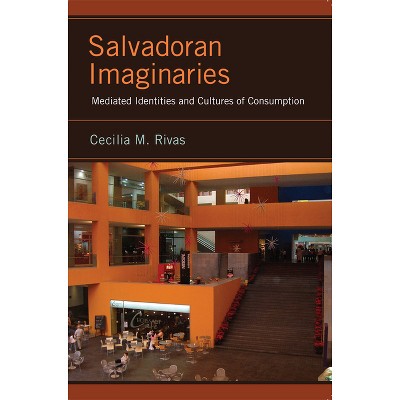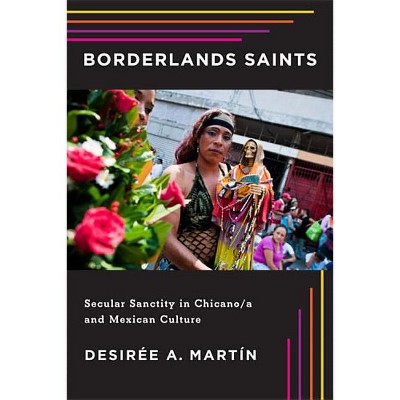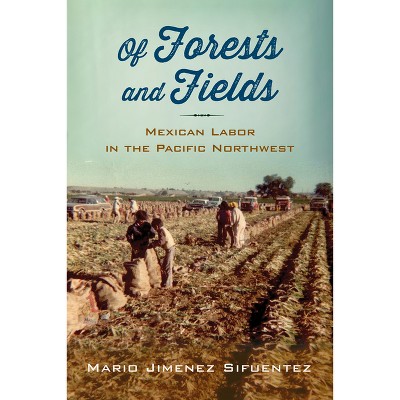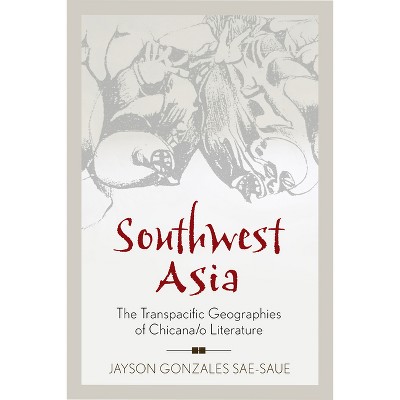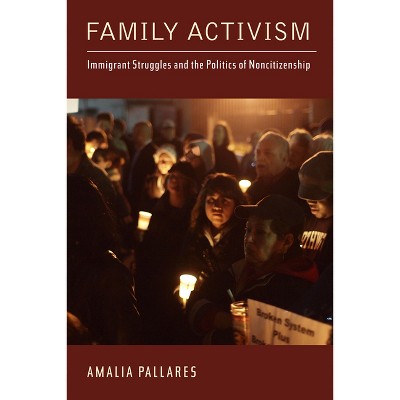Disenchanting Citizenship - (Latinidad: Transnational Cultures in the United States) by Luis F B Plascencia (Paperback)

About this item
Highlights
- Central to contemporary debates in the United States on migration and migrant policy is the idea of citizenship, and--as apparent in the continued debate over Arizona's immigration law SB 1070--this issue remains a focal point of contention, with a key concern being whether there should be a path to citizenship for "undocumented" migrants.
- About the Author: LUIS F. B. PLASCENCIA is an assistant professor of anthropology and affiliated faculty in the School of Transborder Studies and the School of Public Affairs at Arizona State University.
- 266 Pages
- Social Science, Anthropology
- Series Name: Latinidad: Transnational Cultures in the United States
Description
About the Book
Luis F. B. Plascencia's Disenchanting Citizenship explores two interrelated issues: U.S. citizenship and the Mexican migrants' position in the United States. Through an extensive and multifaceted collection of interviews, ethnographic fieldwork, ethno-historical research, and public policy analysis, Plascencia probes the ways in which citizenship discourses are understood and taken up by individuals. The book uncovers citizenship's root as a Janus-faced construct that encompasses a simultaneous process of inclusion and exclusion. This notion of citizenship is mapped on to the migrant experience, arguing that the acquisition of citizenship can lead to disenchantment with the very status desired. Using the experience of Mexican migrants, Plascencia expands the understanding of the dynamics of U.S. citizenship as a form of membership and belonging.
Book Synopsis
Central to contemporary debates in the United States on migration and migrant policy is the idea of citizenship, and--as apparent in the continued debate over Arizona's immigration law SB 1070--this issue remains a focal point of contention, with a key concern being whether there should be a path to citizenship for "undocumented" migrants. In Disenchanting Citizenship, Luis F. B. Plascencia examines two interrelated issues: U.S. citizenship and the Mexican migrants' position in the United States.The book explores the meaning of U.S. citizenship through the experience of a unique group of Mexican migrants who were granted Temporary Status under the "legalization" provisions of the 1986 IRCA, attained Lawful Permanent Residency, and later became U.S. citizens. Plascencia integrates an extensive and multifaceted collection of interviews, ethnographic fieldwork, ethno-historical research, and public policy analysis in examining efforts that promote the acquisition of citizenship, the teaching of citizenship classes, and naturalization ceremonies. Ultimately, he unearths citizenship's root as a Janus-faced construct that encompasses a simultaneous process of inclusion and exclusion. This notion of citizenship is mapped on to the migrant experience, arguing that the acquisition of citizenship can lead to disenchantment with the very status desired. In the end, Plascencia expands our understanding of the dynamics of U.S. citizenship as a form of membership and belonging.
Review Quotes
"...an important book for those interested in the operation of citizenship and citizenship education in the United States."
-- "The Journal of American History" (9/1/2013 12:00:00 AM)
"In addition to a careful analysis of 'formally and informally authorized' immigrants, Plascencia's book contributes to current scholarship on citizenship by exploring what it means to Mexican nationals who pursue it."--Caroline B. Brettell "Southern Methodist University" (6/9/2011 12:00:00 AM)
"Using working-class Mexican immigrants as an example, Plascencia explores how race, social class, and nationality affect who is considered a person deserving of U.S. citizenship."--Martha Menchaca "University of Texas, Austin" (1/24/2012 12:00:00 AM)
"Plascencia deepens and expands our understanding of citizenship and how its promises and limitations directly impact peoples' lives."
-- "Latino Studies"
About the Author
LUIS F. B. PLASCENCIA is an assistant professor of anthropology and affiliated faculty in the School of Transborder Studies and the School of Public Affairs at Arizona State University. He has published articles in numerous journals, including Urban Anthropology and International Migration Review.






